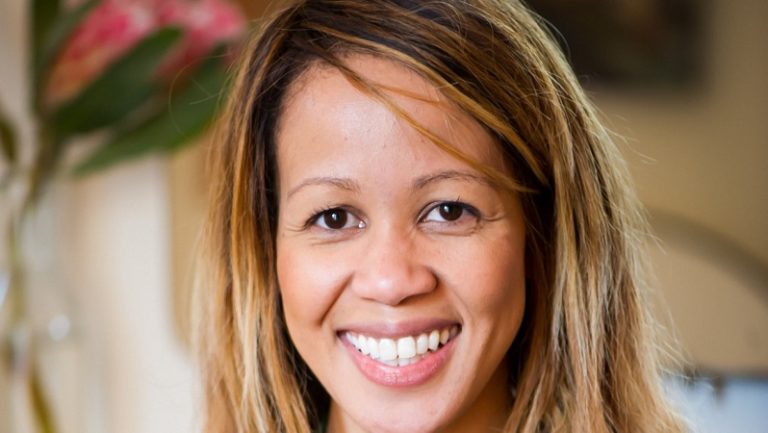Acer Africa has launched a refreshed portfolio of devices aimed at South African students, just in time for the new academic cycle. Designed for…
Funding black female entrepreneurs is crucial to SA’s startup growth

Globally, growing attention is rightly being paid to the issue of underfunding of diverse founders in general, and women in particular, in the startup space.
According to Quartz, less than five percent of global venture capital went to female-led startups in 2019 (against 10% in Silicon Valley, the global capital of tech startups)
While it’s difficult to get an accurate number for South Africa, one estimate suggests that as little as 4.5% of VC funding went to female-founded startups between January 2018 and August 2019. When it comes to black women, meanwhile, the numbers are even more dire. Less than 0.2% of all early-stage venture funding goes to black women.
Those numbers are hardly likely to have improved over the past year either, with research showing that the coronavirus pandemic has hit female-led firms disproportionately when it comes to venture funding.
Some may argue that those figures reflect a shortage of female entrepreneurs. And while it’s true that women account for just 19.4% of business owners in South Africa (with even fewer in the high-growth startup space), the numbers receiving funding should still at least be closer to 20% than 4.5%.
By failing to invest in women-founded startups at anywhere near the same rate as male-founded ones, venture capitalists (VCs) are missing out on a massive potential opportunity.
The big opportunity
And the opportunity really is massive.
According to a study by the Boston Consulting Group, if women participated equally as entrepreneurs, the rise in GDP across the world could be between 3% to 6%, adding up to a $5-trillion injection for the global economy. Other research has also shown that startups with at least one female founder raise, over time, 21% more VC funding than companies headed by all-male teams.
The link between racial and cultural diversity and startup success is similarly well established. A study by the Kauffman Fellows Research Centre found that startups with diverse founders outperform others by 30% when they go public or are acquired, providing improved returns for investors.
One local VC firm that recognises that opportunity is Entrepreneurs for Entrepreneurs (E4E) Africa. While the firm, whose partners all have entrepreneurial experience themselves, does invest in startups with all types of founders, its focus is on “mission-driven founder teams – with special attention on under-represented entrepreneurs (black & female)”.
According to managing partner Philani Sangweni, the firm would “prefer a world where gender or skin colour is not a relevant factor when making investment decisions”.
“This has not, however, been – and isn’t – the reality in South Africa, and in the world at large,” he says. “We, therefore, prioritise investing in under-represented entrepreneurs – black and female founders, and diverse teams.”
Having that kind of deliberate focus is important, especially given that as recently as 2017 women held just 10% of all senior positions in private equity and venture capital firms globally
Sangweni is quick to point out, however, that E4E isn’t increasing its risk profile by taking this approach. Far from it.
“The businesses we invest in are all robust and have the potential to expand across Africa and beyond,” he says. “There is massive untapped potential in South Africa, and we want to identify and support it.”
Paying it forward
SweepSouth co-founder and E4E partner Aisha Pandor highlights the importance of support and funding, especially given that she didn’t have it in the early stages of her startup career.
“In the early days of SweepSouth, we were entirely bootstrapped,” she says of the company she co-founded with her husband Alen Ribic. “We ended up having to sell our house and its contents, and move in with my parents. That wouldn’t have been a necessity had we been able to access funding.”
Pandor describes the funding SweepSouth eventually secured as the “rocket ship” that helped fuel its growth.
Today, SweepSouth is one of about 50 black women-led tech startups globally to have raised more than US$1 million in venture capital funding.
“This space is not representative of women. It’s not dynamic and there aren’t near enough women at the forefront, running tech companies,” said Pandor.
That, in part, is what motivated her to join E4E as a partner.
“I am constantly approached by early-stage entrepreneurs seeking guidance, advice on funding options, and mentorship. A lot of these entrepreneurs are women, who have a limited number of female role models they can talk to. It is great to be part of a structure in E4E that understands the need to invest in black and female entrepreneurs. We can really transfer the experience, skills, and contacts my colleagues and I have built up over the years to the next generation of entrepreneurs,” adds Pandor.
Long term rewards
For VCs like E4E that are willing to invest in black and female entrepreneurs, the status quo represents an opportunity, especially as other VCs might pass on startups that don’t conform to their idea of a successful enterprise.
“Historical funding disparity and an immature eco-system represent an opportunity that we would like to turn into value creation for our entrepreneurs and investors, which will ultimately benefit the entire country into the long term,” concludes Sangweni.
This article was written by Philani Sangweni, managing partner at Entrepreneurs 4 Entrepreneurs (E4E) Africa.
Featured image: SweepSouth co-founder Aisha Pandor (Supplied)

